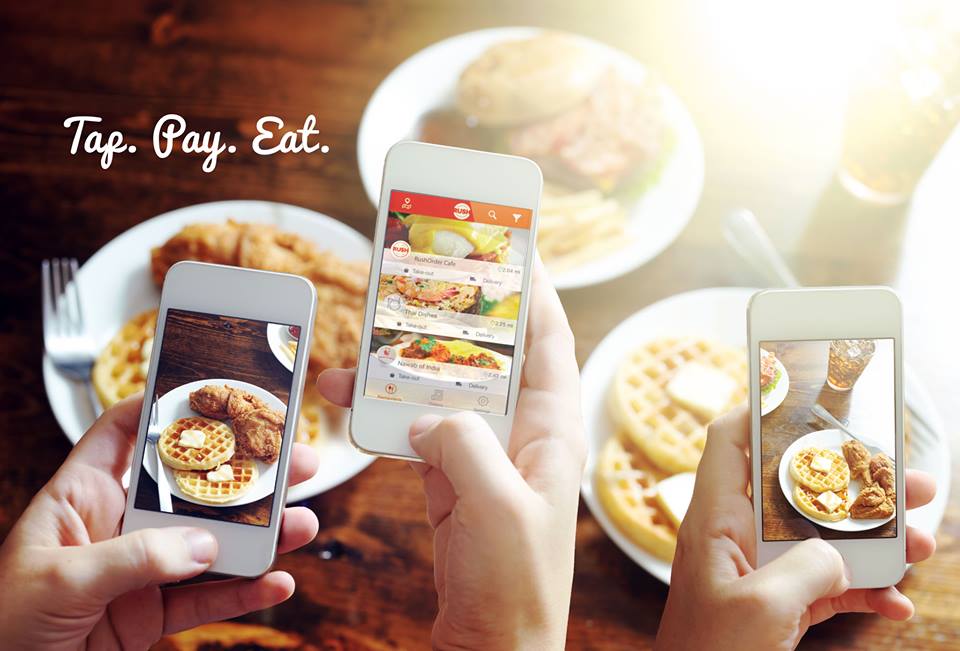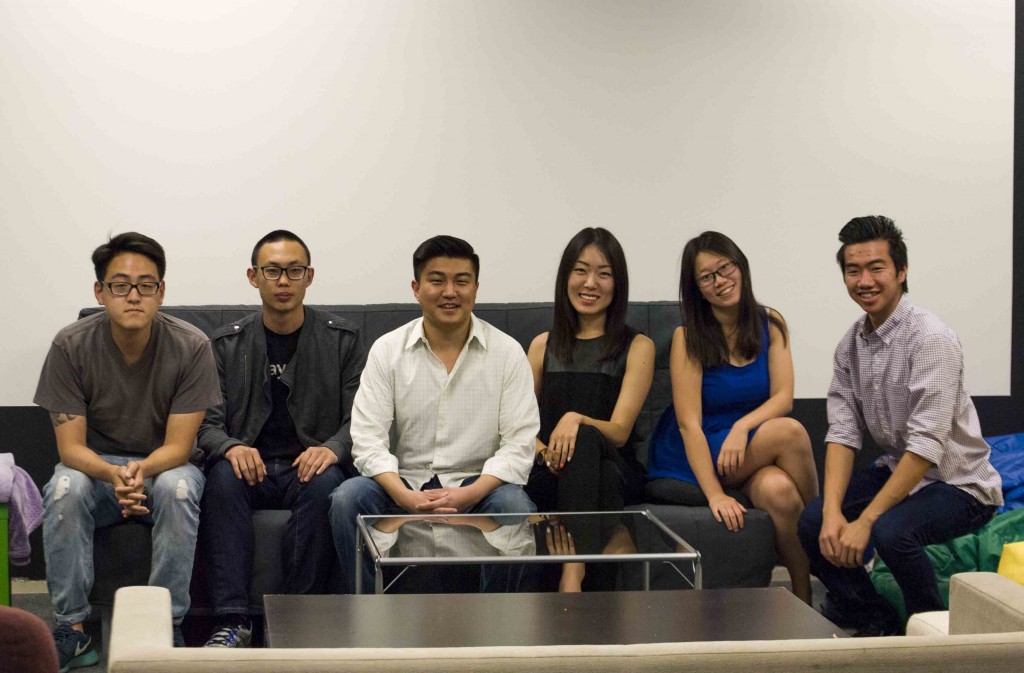- California Assembly OKs highest minimum wage in nation
- S. Korea unveils first graphic cigarette warnings
- US joins with South Korea, Japan in bid to deter North Korea
- LPGA golfer Chun In-gee finally back in action
- S. Korea won’t be top seed in final World Cup qualification round
- US men’s soccer misses 2nd straight Olympics
- US back on track in qualifying with 4-0 win over Guatemala
- High-intensity workout injuries spawn cottage industry
- CDC expands range of Zika mosquitoes into parts of Northeast
- Who knew? ‘The Walking Dead’ is helping families connect
RushOrder competes in shifting $70 billion industry via K-food niche
By Brian Han
A $70 billion dollar-a-year industry that’s just beginning its shift to online and mobile platforms is a drool-worthy scenario for any tech entrepreneur — especially when the topic revolves around food.
To be more specific, the food takeout and delivery market is responsible for generating this sizable sum.
“We’re witnessing the start of this broad shift in the way consumers order food,” CEO of RushOrder Eric Kim says. “About 75 percent of orders are still made by phone, but eventually all these customers are going to eventually transition to online.”
Despite the shifting momentum, it’s not as if these types of services just appeared overnight.
For example, GrubHub has been around since 2004 and processes roughly 174,000 orders across the U.S. on a daily basis according to its own reports.
It’s tough to compete with those kinds of numbers, but RushOrder, an app that provides online ordering and delivery among other things, is making a case for itself by filling a niche — Korean food in Los Angeles.
“One of the means that has been the emphasis for our growth recently is that we’re the only app where our users can pull up a bunch of quality Korean restaurants,” Kim said. “Koreatown is really important to us. Even though there are other established companies doing this already, a lot of the restaurants go unaddressed and that’s where we fill the need.”
But it’s more than just finding hidden gems around town.
It’s also about bridging the gap between cultures.
Los Angeles is home to the densest Korean population in the world outside of South Korea according to the 2010 U.S. census and that number continues to grow.
What has resulted are pockets of Korean communities that still heavily rely on their native language and cultural norms.
This can sometimes intimidate outsiders or make restaurants just plain difficult to find.
“Many of our customers are also non-Korean,” Kim said. “As popular as Koreatown has become lately, there are still places where it’s not necessarily easy or comfortable for someone who doesn’t speak Korean to order a dish. So we translate all the menus into both languages and make sure to highlight items that are popular.”
Of course some of these mom and pop restaurants are reluctant to pay commission to another company especially when profit margins are thin.
But Kim understands this and has someone he knows well with whom he can try out ideas — his father.
“My parents own a small restaurant and I’ll test stuff out on my dad, but the thing is he’s so set in his ways,” he said with a grin. “It is so hard to get through to that man, but after seeing all the neighboring restaurants come around, he eventually did too.”
And like many of the restaurants that RushOrder features, the company is working on a smaller scale.
In fact, it currently has seven full-time employees and a few summer interns.
As a startup, the company is constantly searching for funding and the best way to do that is to demonstrate growth.
RushOrder can’t give out exact numbers for daily orders just yet because the information is sensitive, but says it is currently growing at 30 percent month-over-month.
This means that employees sometimes have to step outside of their normal set of responsibilities especially during the busiest of hours.
“As the CEO, even I’ll be out there making food deliveries if we need it,” Kim said. “Actually, I have to do it all the time. I have to lead by example, right?”
Kim used to work on Wall Street as an analyst where he most likely didn’t have to do anything of the sort, but it’s part of the territory and he doesn’t really seem to mind.
“I was miserable every day back then, but I can confidently say I’m happy now,” he said. “As stressful and as challenging as this has been and continues to be, I enjoy it. I’m not going anywhere for awhile.”
So if the CEO of RushOrder is leading the charge for the long haul, what’s the endgame?
“There are a lot of competing startups that are looking for multi-city expansions and I understand where they’re coming from, but our goal is to build up a very strong presence in Los Angeles,” Kim said. “I want to build a stronghold here, something that’s really defendable.”














![그룹 방탄소년단(BTS) [BTS 공식 트위터. 재판매 및 DB 금지]](http://www.koreatimesus.com/wp-content/uploads/2025/07/Untitled-5-copy-199x223.jpg)





Pingback: Buy Valium Online With Overnight Delivery | Herbal Valium